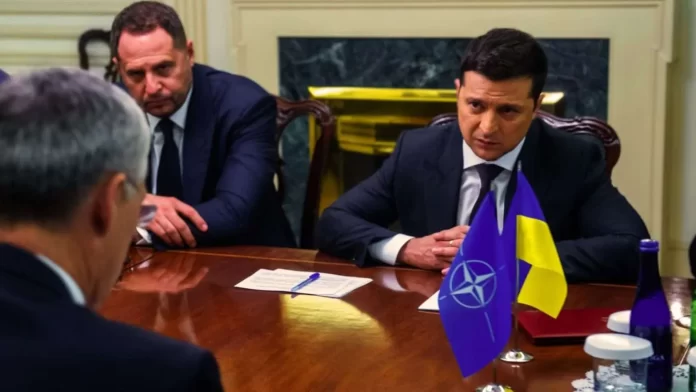The Ukrainian crisis has been going on for more than 600 days, and the war has affected not only the opposing sides but also virtually the entire West. As the horrors of war come to an end, it is getting colder and colder, Globely News informs.
The first serious signs of a consensus breakdown in the West relate to Ukraine’s failed counter-offensive. How seriously are governments across the board prepared to support Kyiv? The answer may already be looming.
Last week, Volodymyr Zelensky went to New York to address the UN General Assembly, in which he renewed the appeal to world leaders for the highest level of support for his state.
The position here is ambiguous. The West adheres to Kyiv’s position: first return territorial integrity, then come to the negotiation table. The opposition’s stance is to cease violence as soon as possible and return to the subject of negotiations.
The variation of opinions obviously occurred the next morning, when Russian Foreign Minister Sergei Lavrov was due to speak, presenting completely opposite reasons for the development of such events.
Nevertheless, there is the phenomenon that cannot be left overlooked: as soon as the debate between Zelensky and Lavrov was over, the Security Council shifted all its attention to the situation in Nagorno-Karabakh. Ukraine is not the only country in need of assistance.
This was followed by a visit to Washington, where Zelensky competently secured “another military aid package worth $325 million (£192 million).” More problematic, although, is another $24bn aid package, which is still subject to congressional approval: the Republican House majority leader, Kevin McCarthy, will not commit to putting a bill to that effect on the legislative schedule before the end of the year.
At the end of his trip in Washington, D.C., Zelensky was refused to address a joint session of the House and Senate.
In Canada, he was given a universally warm reception, shortly after he left the country with a military aid package “worth C$650 million (£394 million).”
While Zelensky was in the US and Canada, Hungary, Poland and Slovakia “defied the end of an EU-wide ban on grain imports from Ukraine.” Poland then went one step further and also put a temporary halt on any weapons deliveries to Ukraine. In his speech at the UN General Assembly, Zelensky called it “political theatre” and a “gift for Moscow.”
It is worth noting that the grain dispute is just one of the obstacles if, of course, Ukraine wants to become part of the European Union.
Resolving the current issue of discord between Poland and Ukraine is only one of Volodymyr Zelensky’s tasks, because subjecting sincere relations with your neighbours to such a rift, especially if you share the same position, is ruinously dangerous. Polish Prime Minister Mateusz Morawiecki clearly wants to be seen protecting his country’s farmers from Ukrainian grain exporters, especially ahead of parliamentary elections next month.
The EU, represented by Ursula von der Leyen, noted in her annual address to the European Parliament that “accession [to the EU] is based on merit” and recognised “the great strides Ukraine has already made.”
The conflict is taking place amid an unprecedented counter-offensive. Ukraine has recently taken a number of successful actions in the south of the country and launched an attack on the Russian Black Sea Fleet Headquarters in Crimea. However, this is not yet enough to realise that the war is gradually developing into a protracted conflict that may require huge resources.
Last week’s events showed the vulnerability of the West: “nor could it be argued that this was merely a defeat for Ukraine,” but the defeat of the Western alliance that lacked the means to win a confrontation with Russia.
